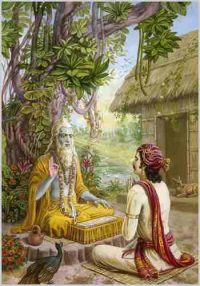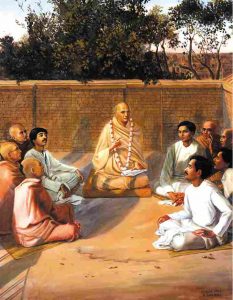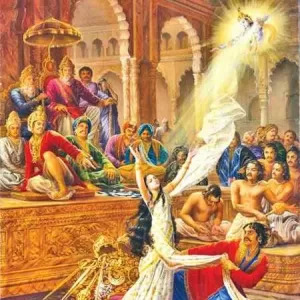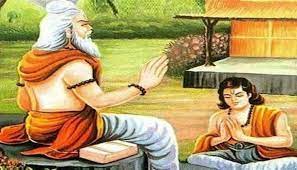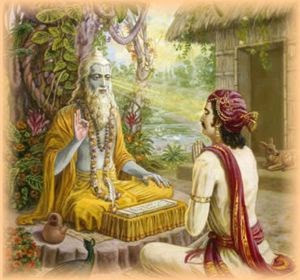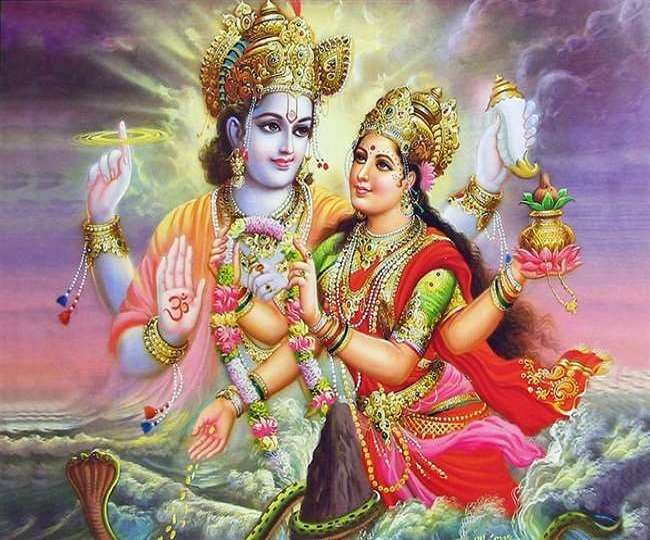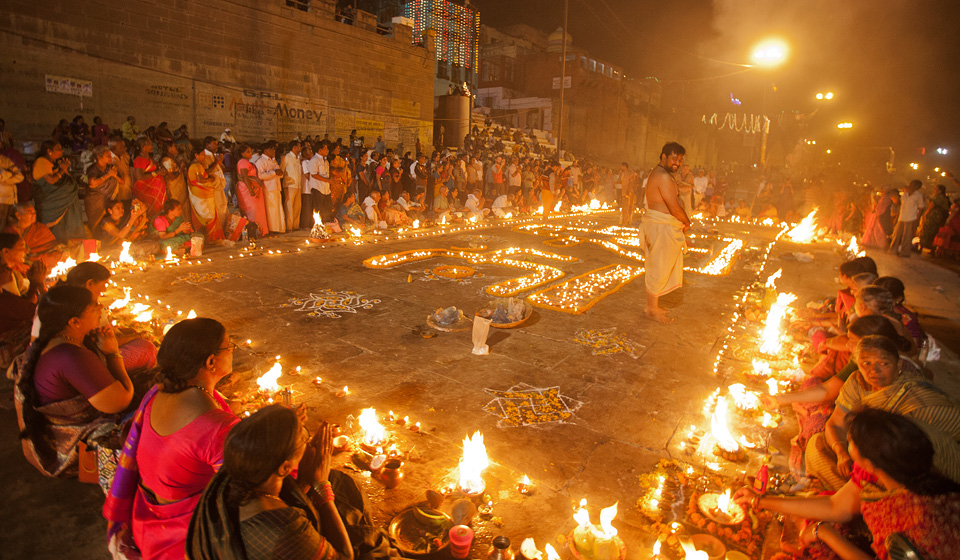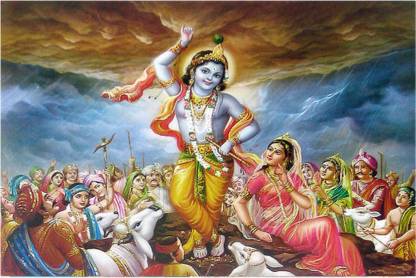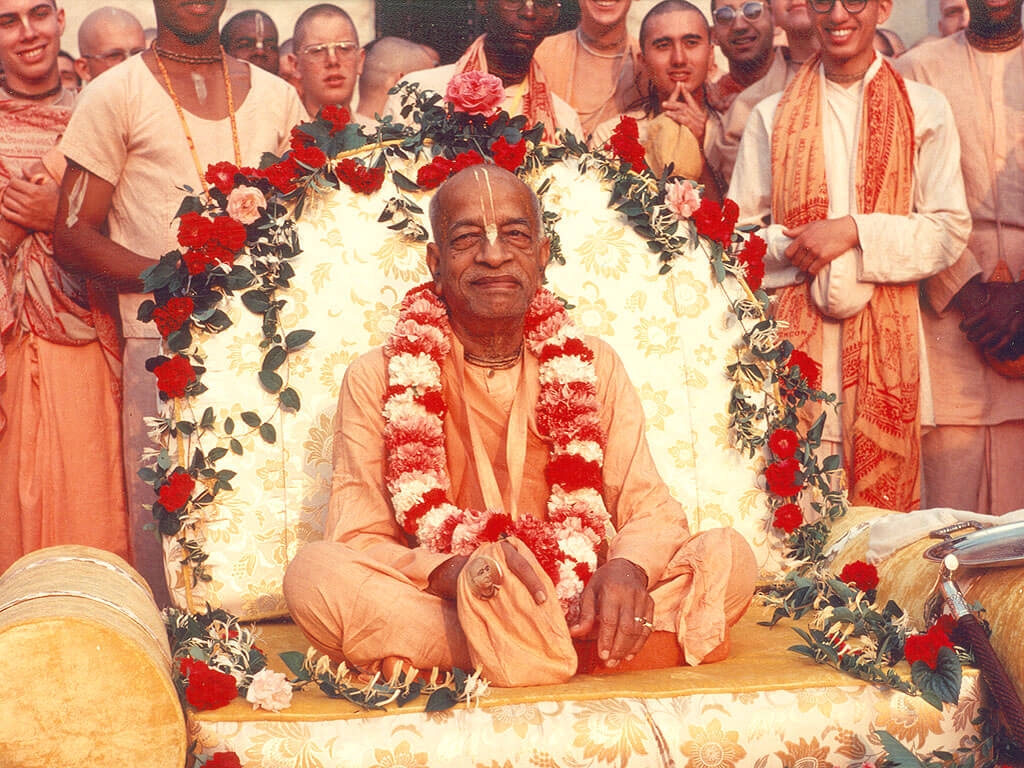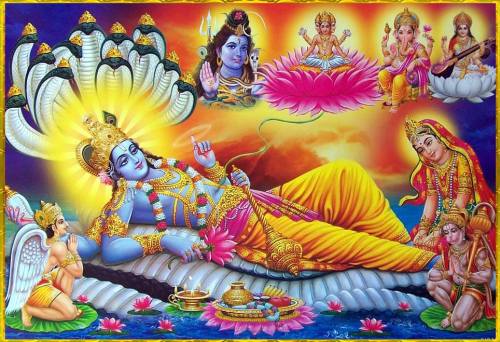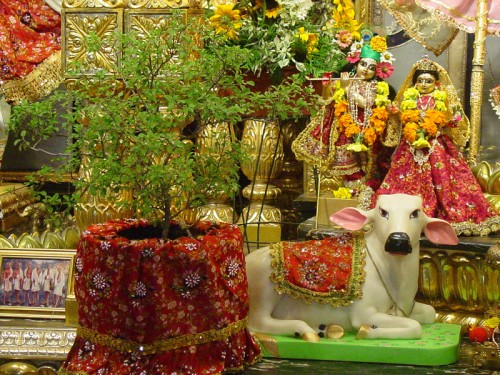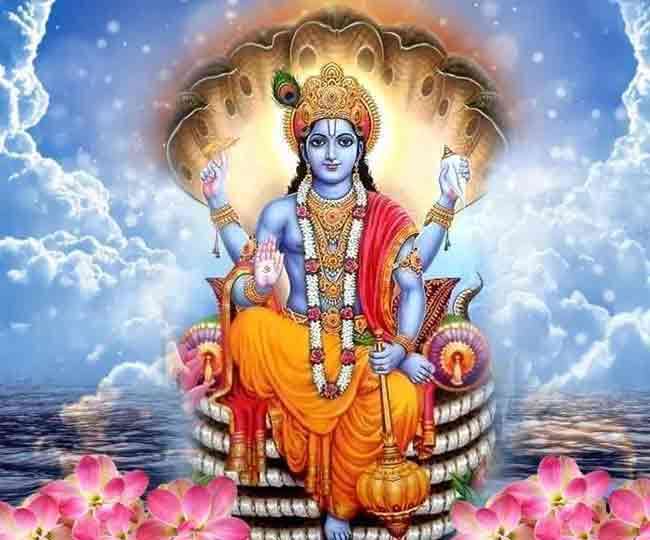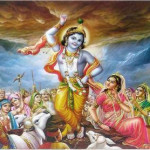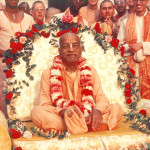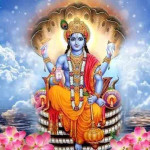Disciplic succession from Brahma-Sampradya.
Brahma is the direct recipient of Vedic knowledge from the Personality of Godhead, and anyone discharging his entrusted duties in disciplic succession from Brahma is sure to gain fame in this life and salvation in the next. The disciplic succession from Brahma is called the Brahma-sampradaya, and it descends as follows: Brahma, Narada, Vyasa, Madhva Muni (Purnaprajna), Padmanabha, Nrhari, Madhava, Aksobhya, Jayatirtha, Jnana sindhu, Dayanidhi, Vidyanidhi, Rajendra, Jayadharma, Purusottama,Brahmanya tirtha, Vyasatirtha,Lakshmipati, Madhavendra Puri, Isvara Puri, Sri Chaitanya Mahaprabhu, Svarupa Damodara and Sri Rupa Gosvami and others, Sri Raghunatha dasa Gosvami, Krishnadasa Gosvami, Narottama dasa Thakura, Visvanatha Cakravarti, Jagannatha dasa Babaji, Bhaktivinoda Thakura, Gaurakisora dasa Babaji, Srimad Bhaktisiddhanta Sarasvati, A. C. Bhaktivedanta Swami. This line of disciplic succession from Brahma is spiritual, whereas the genealogical succession from Manu is material, but both are on the progressive march towards the same goal of Krishna consciousness.
Lord Brahma is the original speaker of Vedic wisdom to Narada, and Narada is the distributor of transcendental knowledge all over the world through his various disciples, like Vyasadeva and others. The followers of Vedic wisdom accept the statements of Brahmaji as gospel truth, and transcendental knowledge is thus being distributed all over the world by the process of disciplic succession from time immemorial, since the beginning of the creation. Lord Brahma is the perfect liberated living being within the material world, and any sincere student of transcendental knowledge must accept the words and statements of Brahmaji as infallible. The Vedic knowledge is infallible because it comes down directly from the Supreme Lord unto the heart of Brahma, and since he is the most perfect living being, Brahmaji is always correct to the letter. And this is because Lord Brahma is a great devotee of the Lord who has earnestly accepted the lotus feet of the Lord as the supreme truth. In the Brahma-samhita, which is compiled by Brahmaji, he repeats the aphorism govindam adi-purusam tam aham bhajami: “I am a worshiper of the original personality of Godhead, Govinda, the primeval Lord.” So whatever he says, whatever he thinks, and whatever he does normally in his mood are to be accepted as truth because of his direct and very intimate connection with Govinda, the primeval Lord. Sri Govinda, who pleasingly accepts the loving transcendental service of His devotees, gives all protection to the words and actions of His devotees. The Lord declares in the Bhagavad-gita (9.31), kaunteya pratijanihi: “O son of Kunti, please declare it.” The Lord asks Arjuna to declare, and why? Because sometimes the declaration of Govinda Himself may seem contradictory to mundane creatures, but the mundaner will never find any contradiction in the words of the Lord’s devotees. The devotees are especially protected by the Lord so that they may remain infallible. Therefore the process of devotional service always begins in the service of the devotee who appears in disciplic succession.The devotees are always liberated, but that does not mean that they are impersonal.The Lord is a person eternally, and the devotee of the Lord is also a person eternally. Because the devotee has his sense organs even at the liberated stage, he is therefore a person always. And because the devotee’s service is accepted by the Lord in full reciprocation, the Lord is also a person in His complete spiritual embodiment. The devotee’s senses, being engaged in the service of the Lord, never go astray under the attraction of false material enjoyment. The plans of the devotee never go in vain, and all this is due to the faithful attachment of the devotee for the service of the Lord. This is the standard of perfection and liberation. Anyone, beginning from Brahmaji down to the human being, is at once put on the path of liberation simply by his attachment in great earnestness for the Supreme Lord, Sri Krishna, the primeval Lord.
Source: A.C. Bhaktivedanta Swami Prabhupada (2014 edition), “Srimad Bhagavatam”, Third Canto, Chapter 13 – Text 08
A.C. Bhaktivedanta Swami Prabhupada (2014 edition), “Srimad Bhagavatam”, Second Canto, Chapter 06 – Text 34


